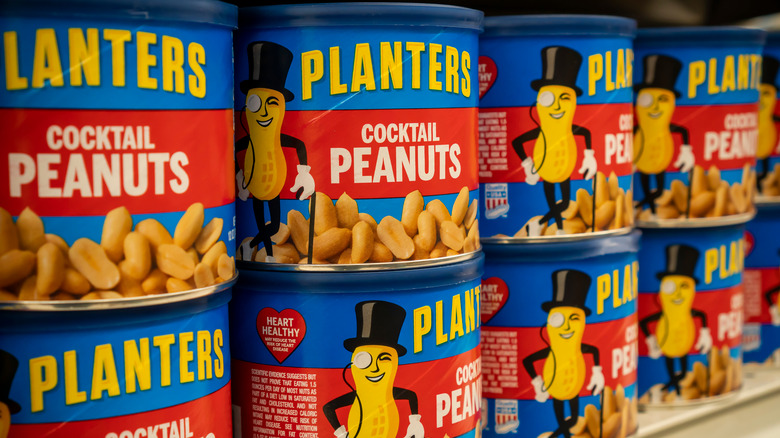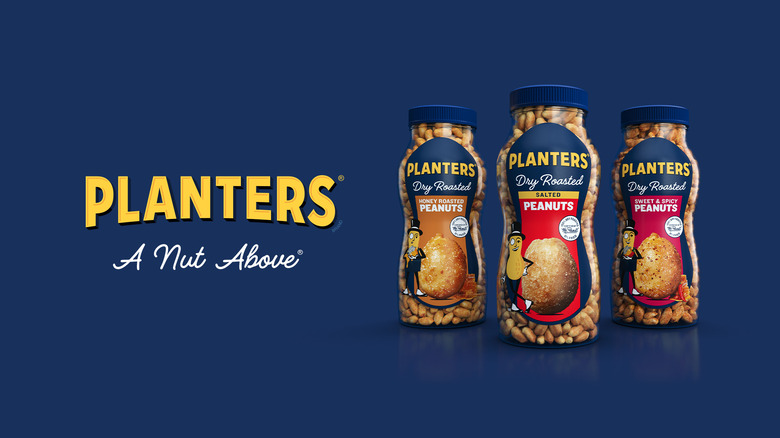How Planters Just Made Its Packaging Way More Sustainable
Unless you live in a warm climate where peanuts grow in your backyard, you might say Planters is to peanuts what Chapstick is to lip balm, or what Kleenex is to tissues. The brand has gone through many transformations since its founding in Wilkes-Barre, Pennsylvania in 1906 (per Planters). Many of those changes have to do with variations of the product inside (like the dry-roasted sweet and spicy peanuts introduced this summer), but its packaging has evolved over time, too.
For starters, the brand's iconic Mr. Peanut mascot didn't exist until grade schooler Antonio Gentile submitted a winning sketch for the company's 1916 branding contest, according to the company. Since then, not only has Mr. Peanut become one of the most iconic food mascots of all time, but Planters has sold its peanuts in heavy-duty tin cans, glass jars, foil-lined bags, and, most commonly, plastic containers.
Now, the company is preparing for the next step in its packaging evolution. As part of its sustainability initiative, Planters' parent company, Hormel Foods, is reducing the amount of plastic in the nut brand's packaging.
Less plastic with your roasted peanuts
In a press release, Planters gave word of its new peanut-shaped sustainable packaging, which uses 8% less plastic than its dry-roasted nuts' standard 16-ounce bottles. Collectively, the new packaging, which is now on shelves nationwide, will save over 200 tons of plastic this year, according to the release.
The move is part of Hormel Foods' "20 By 30 Challenge," which aims to reduce the negative environmental impact of its brands' packaging, nonrenewable energy use, greenhouse gas emissions, water use, and solid waste use (via Hormel). According to press release, the sustainability initiatives by Hormel's packaging team saved "more than 727,000 pounds" of waste last year.
In addition to the Planters packaging rollout, the nut brand has teamed up with Applegate subsidiary Applegate Naturals to launch the Do Good Dog hot dog, "made with beef raised on verified regenerative U.S. grasslands," per a statement from Hormel CEO Jim Snee. Regenerative grasslands, or agriculture, aims to reverse the impact of meat production on the climate with policies around rebuilding soil biodiversity and organic matter (per Well+Good).
All in all, the tiny little peanut is now packing more environmental friendliness in every bottle.

